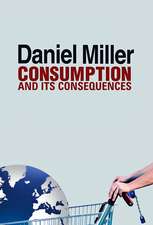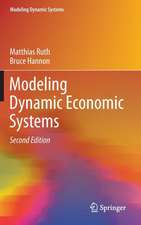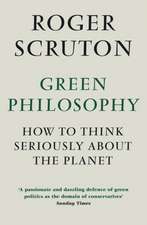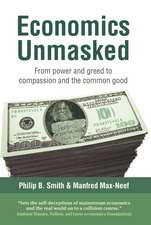Environmental Economics
Autor Philip E. Gravesen Limba Engleză Hardback – 8 apr 2007
| Toate formatele și edițiile | Preț | Express |
|---|---|---|
| Paperback (1) | 249.02 lei 6-8 săpt. | |
| Rowman & Littlefield – 8 apr 2007 | 249.02 lei 6-8 săpt. | |
| Hardback (2) | 668.51 lei 6-8 săpt. | |
| Rowman & Littlefield – 8 apr 2007 | 668.51 lei 6-8 săpt. | |
| CRC Press – 21 aug 2013 | 813.65 lei 6-8 săpt. |
Preț: 668.51 lei
Preț vechi: 915.78 lei
-27% Nou
Puncte Express: 1003
Preț estimativ în valută:
127.92€ • 139.39$ • 107.79£
127.92€ • 139.39$ • 107.79£
Carte tipărită la comandă
Livrare economică 23 aprilie-07 mai
Preluare comenzi: 021 569.72.76
Specificații
ISBN-13: 9780742546981
ISBN-10: 0742546985
Pagini: 187
Dimensiuni: 163 x 230 x 20 mm
Greutate: 0.42 kg
Editura: Rowman & Littlefield
ISBN-10: 0742546985
Pagini: 187
Dimensiuni: 163 x 230 x 20 mm
Greutate: 0.42 kg
Editura: Rowman & Littlefield
Notă biografică
Descriere
Describes why the practice of benefit-cost analysis in environmental settings is heavily biased against the environment. This book provides environmentalists with the tools necessary to show policy-makers that pursuing many policies with apparent costs greater than benefits are, in fact, welfare-enhancing.
Cuprins
Environmental Policy with Perfect Information: The Basic Theory. Introduction. The Economy and the Environment: Uncontrolled Case (Pre-Institution). The Economy and the Environment: The Case of Optimal Controls (Post-Institution). Provision of Public Goods (Pre-Institution and Post-Institution). The Role of Time in Economics: Interest Rates, Compounding, and Discounting. Benefit-Cost Analysis with Perfect Information. Environmental Policy with Imperfect Information. Information Difficulties: The Individual Household and the Benefits of Environmental Policies. Information Difficulties: The Individual Firm and the Costs of Environmental olicies. Information Difficulties: The Policy-Maker. Valuation--Acquiring Information about Environmental Benefits. Overview of valuation Methods. Environmental Valuation: Voting and Referenda. Environmental Valuation: Constructed Markets. Environmental Valuation: The Sum of Specific Damages Approach. Environmental Valuation: The Hedonic Method. Environmental Valuation: The Travel Cost Method. Do Decision-Makers "Care" about Efficiency? Impact of Concerns about Equity on Environmental Policy. An Interdisciplinary Environmental Policy Analysis Methodology.Epilog. An Overall Assessment of the State of Environmental Policy Making. The Past and the Future.
Recenzii
"The style and coverage of the book make it perfect as a set text on an undergraduate course in environment economics. It can also function as a practical guide to the application of environmental evaluation. The expert analysis of the limitations of evaluation tools will also make it of interest and value to more experienced readers. Very highly recommended."
—Gareth Myles, University of Exeter
"The textbook offers many interesting examples and cases that conceptualize the environmental economics issue and its connotations. I recommend reading the book for those who are interested in the topic and want to study in modern and interactive way."
—Ondrej Vojacek, University of Economics, Prague
"Environmental questions caught the attention of just a few economists in the late nineteen sixties and seventies. … The sole economics department in this mix was at the University of Chicago with George Tolley’s research group. Philip Graves, fresh out of graduate school, was there when it all started! He showed us how urban and environmental problems were linked. Then and now, with this new text, he continually demonstrates how creative use of micro economics can advance our understanding of the challenges in designing environmental policy."
—V. Kerry Smith, Arizona State University
"Phil Graves presents an integrated approach to environmental economics, covering the various multidisciplinary aspects of the subject, including the modeling of the impacts of pollutants on health and environment and the crucial subject of environmental policy and decision making. I find the book well written, with clear explanations, illustrated by examples. … Students can be inspired by this book to contribute as environmental economists towards bringing about a better environment."
—Ari Rabl, Ecole de Mines de Paris, France
"Professor Graves is an eminent environmental economist and has taken a fresh look at the state of knowledge in this very important field. … I expect the book to be of interest not only to students and researchers but to a general audience interested in what economics could bring to bear in solving the major environmental problems of the day."
—Ujjayant Chakravorty, Professor of Economics, Tufts University
"The broad philosophical perspective and parsimonious use of basic calculus to give precise focus creates a blend that students of environmental economics should find appealing and digestible. … likely to stimulate thinking and constructive discussion."
—Glenn Blomquist, University of Kentucky
—Gareth Myles, University of Exeter
"The textbook offers many interesting examples and cases that conceptualize the environmental economics issue and its connotations. I recommend reading the book for those who are interested in the topic and want to study in modern and interactive way."
—Ondrej Vojacek, University of Economics, Prague
"Environmental questions caught the attention of just a few economists in the late nineteen sixties and seventies. … The sole economics department in this mix was at the University of Chicago with George Tolley’s research group. Philip Graves, fresh out of graduate school, was there when it all started! He showed us how urban and environmental problems were linked. Then and now, with this new text, he continually demonstrates how creative use of micro economics can advance our understanding of the challenges in designing environmental policy."
—V. Kerry Smith, Arizona State University
"Phil Graves presents an integrated approach to environmental economics, covering the various multidisciplinary aspects of the subject, including the modeling of the impacts of pollutants on health and environment and the crucial subject of environmental policy and decision making. I find the book well written, with clear explanations, illustrated by examples. … Students can be inspired by this book to contribute as environmental economists towards bringing about a better environment."
—Ari Rabl, Ecole de Mines de Paris, France
"Professor Graves is an eminent environmental economist and has taken a fresh look at the state of knowledge in this very important field. … I expect the book to be of interest not only to students and researchers but to a general audience interested in what economics could bring to bear in solving the major environmental problems of the day."
—Ujjayant Chakravorty, Professor of Economics, Tufts University
"The broad philosophical perspective and parsimonious use of basic calculus to give precise focus creates a blend that students of environmental economics should find appealing and digestible. … likely to stimulate thinking and constructive discussion."
—Glenn Blomquist, University of Kentucky























